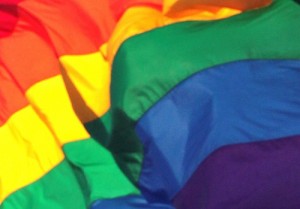Rise in Faith? Mississippi Religious Law Spurns LGBT, While Promoting One Religion
May 11th, 2016

Mississippi’s legislature recently passed a bill allowing service-based discrimination of LGBT individuals.
Some argue that Mississippi has long been known as one of the most conservative in the nation, with its people and legislature thumbing their noses at many of the federal government’s social reform efforts throughout the course of post-Civil War history. Others claim that the state is merely holding true to its roots and ensuring the protection of the way of life known by its inhabitants since its inception. Regardless of its true nature (and an argument exists that it lies somewhere in the middle), Mississippi has once again topped the national headlines for upping the ante in the national fight between the right to gay marriage and religious freedom for individuals.
The Legislation
Mississippi’s Republican dominated legislature sent a bill to the governor that provides the most expansive rights thus far to individuals who wish to express their “strongly held religious beliefs” by denying services to members of the LGBT community. The bill was then signed into law by the governor and is written in such an expansive manner that it could allow individuals (including government officials) to deny a person services based solely on characteristics frowned upon by that person’s interpretation of their religion, according to those who oppose the law.
Leverage as a Factor
Opposing citizens of other states with similar bills proposed by their legislatures were protected in some instances by national public outrage and backlash from businesses, which threatened to pull big ticket events out of their states if the bills were signed into law. That was not likely to affect Mississippi, however, as the state is devoid of any professional sports teams or mega-industrial complexes that bring large amounts of money into the state. In fact, Mississippi is not home to many national or international businesses and is considered by some to be a prime example of a government funded welfare state. While it is unknown what exactly influenced the governor’s decision, it could be said that there was little outside leverage similar to that found in other states that could have had any real impact on the governor’s decision on whether to sign the bill into law.
Any fight against this law will likely need to be done internally, through the state’s own citizenry, in order to triumph over discrimination. That is not to say that religious freedom will be in jeopardy if this bill is found to be unconstitutional. What many religiously minded individuals seem to have forgotten is that the United States of America was founded on principles of equality, and went to war against itself and outside forces again and again to protect those principles. What equality, then, is provided to a gay man in Mississippi who wishes to avail himself of the services of a business only to find himself turned away lawfully because of his sexual orientation? What equality is there when others are denied based on the beliefs of self-proclaimed flawed humans?
Laws protecting religious institutions are one matter, as it is important to ensure that these entities have the freedom to govern themselves, and their flock, in a way that is consistent with their religious belief systems. Laws protecting an individual’s right to be biased against a fellow American, however, should be viewed with extreme caution as history has taught us the fine line between “strongly held religious belief” and hatred. The Universal Life Church will continue its fight to protect religion in America, while at the same time ensuring the principles of freedom this country was built upon are not eroded by misguided faith.


